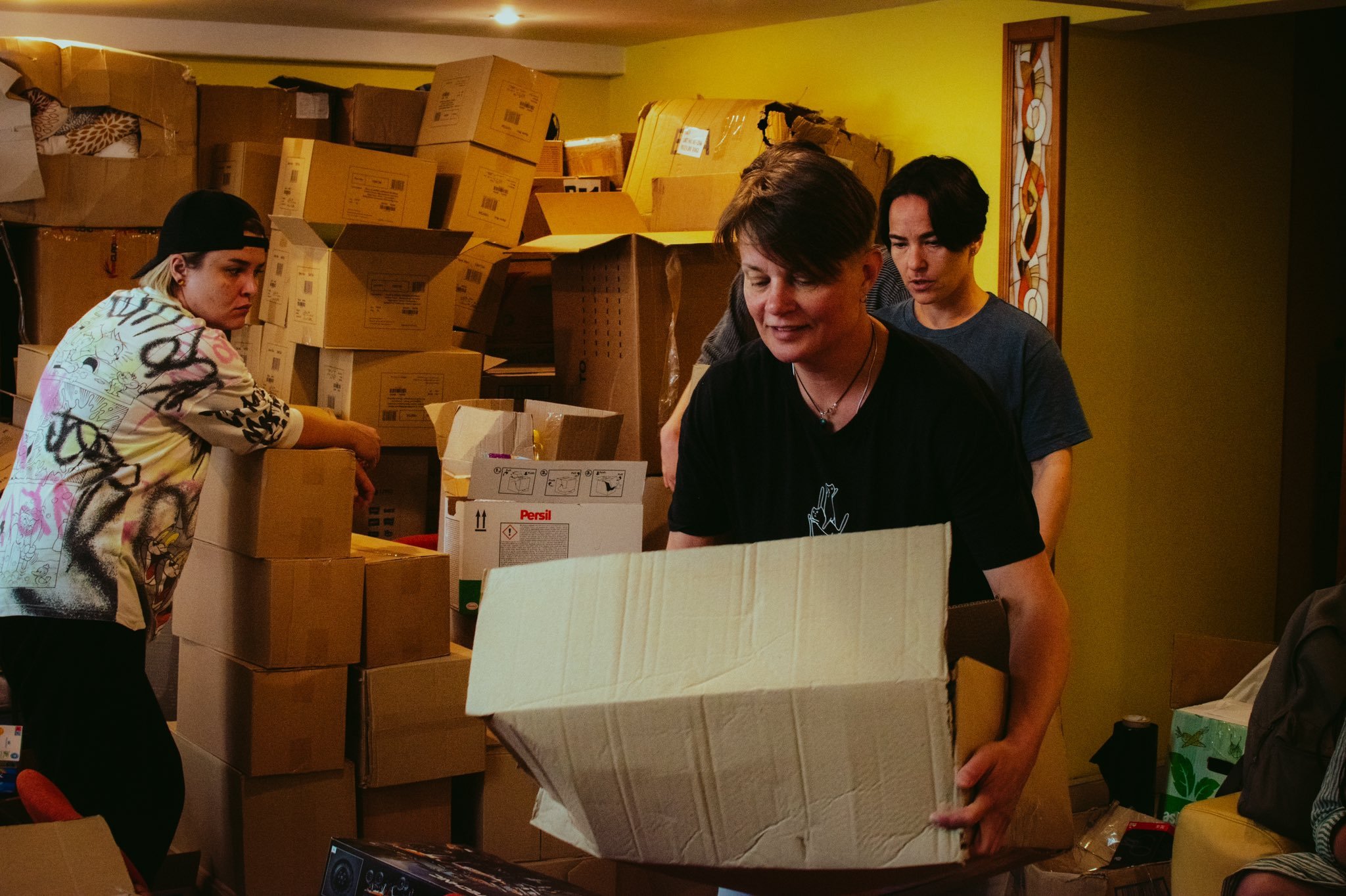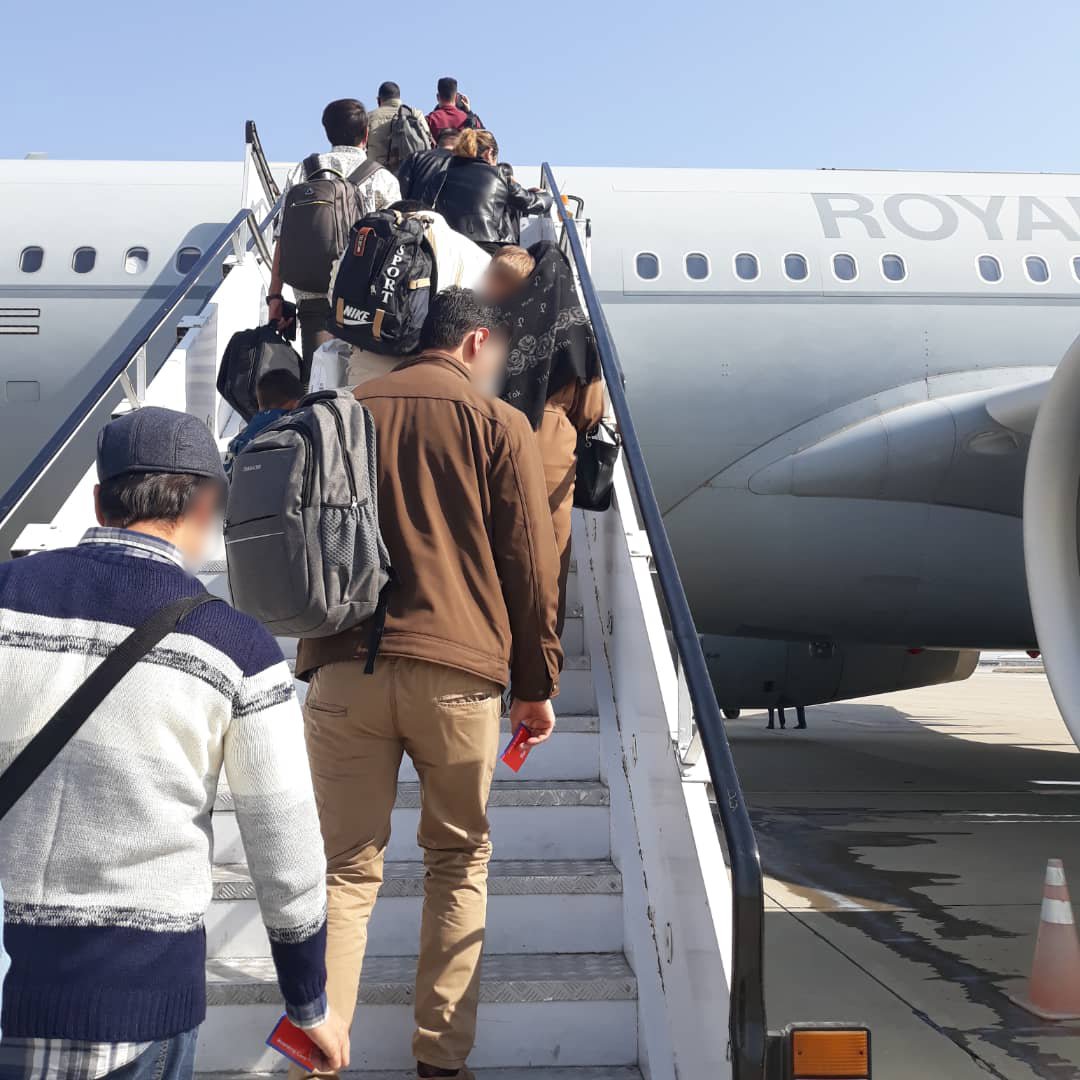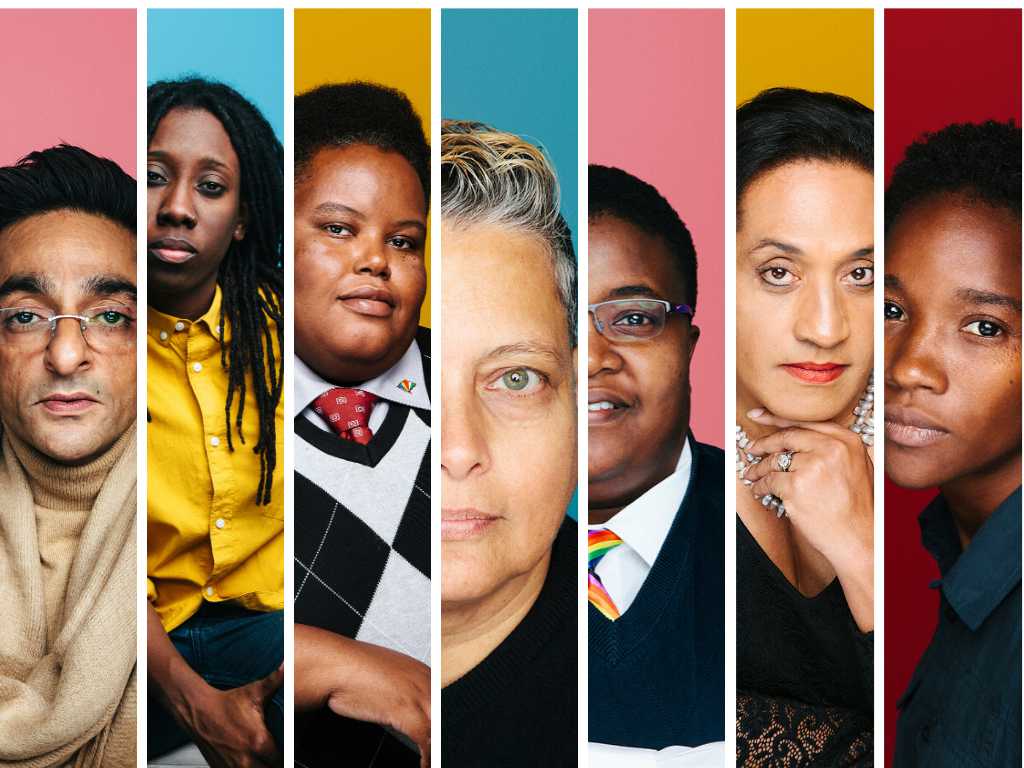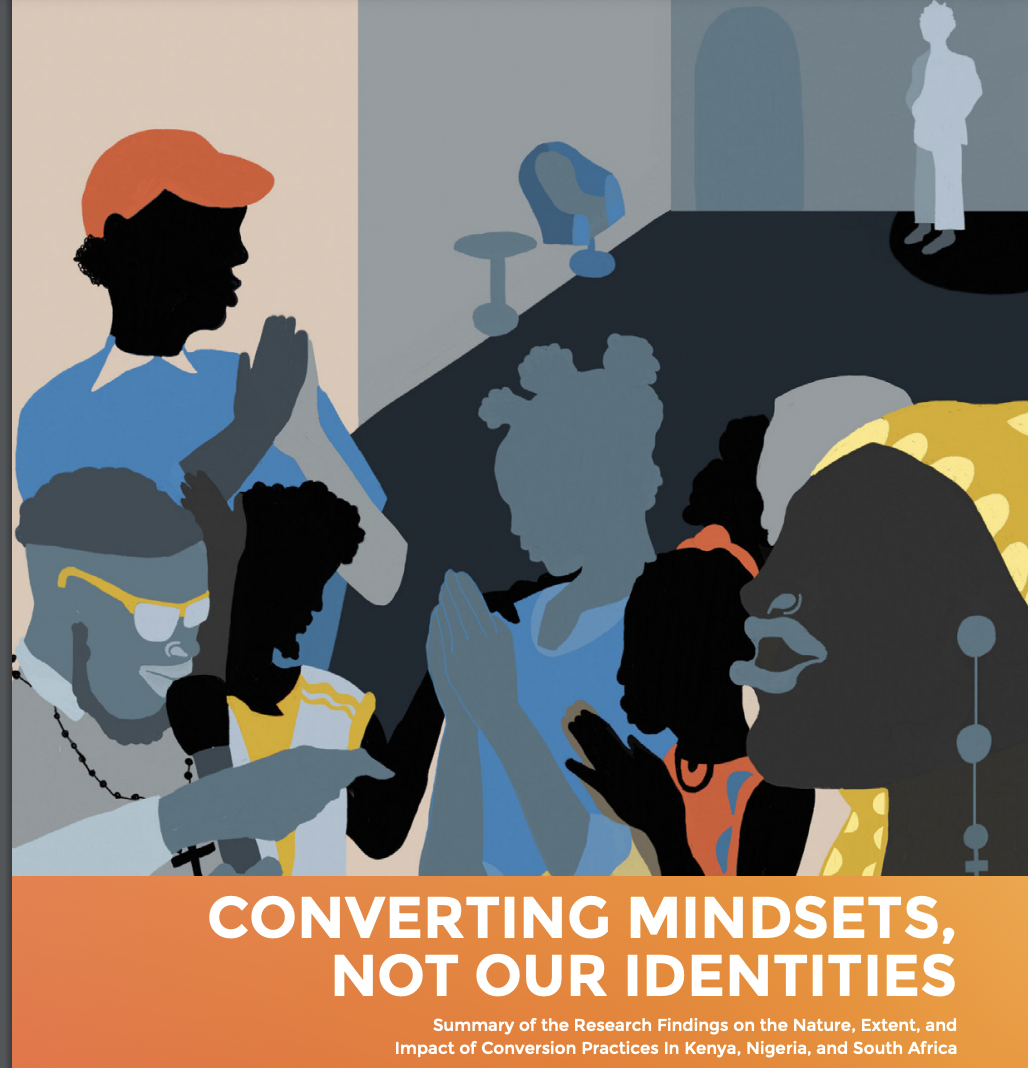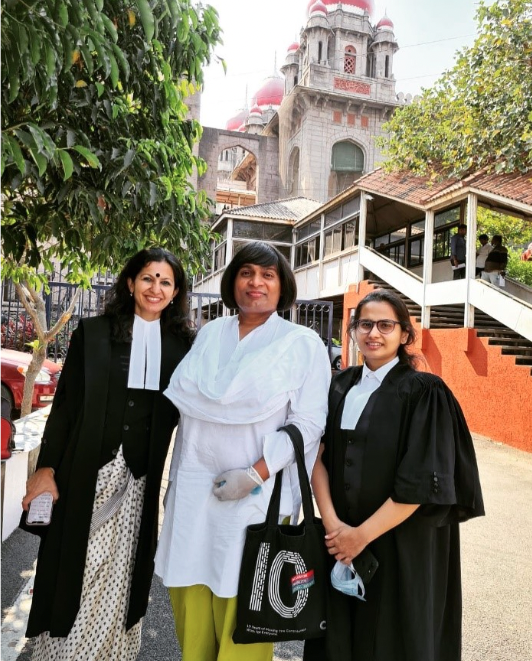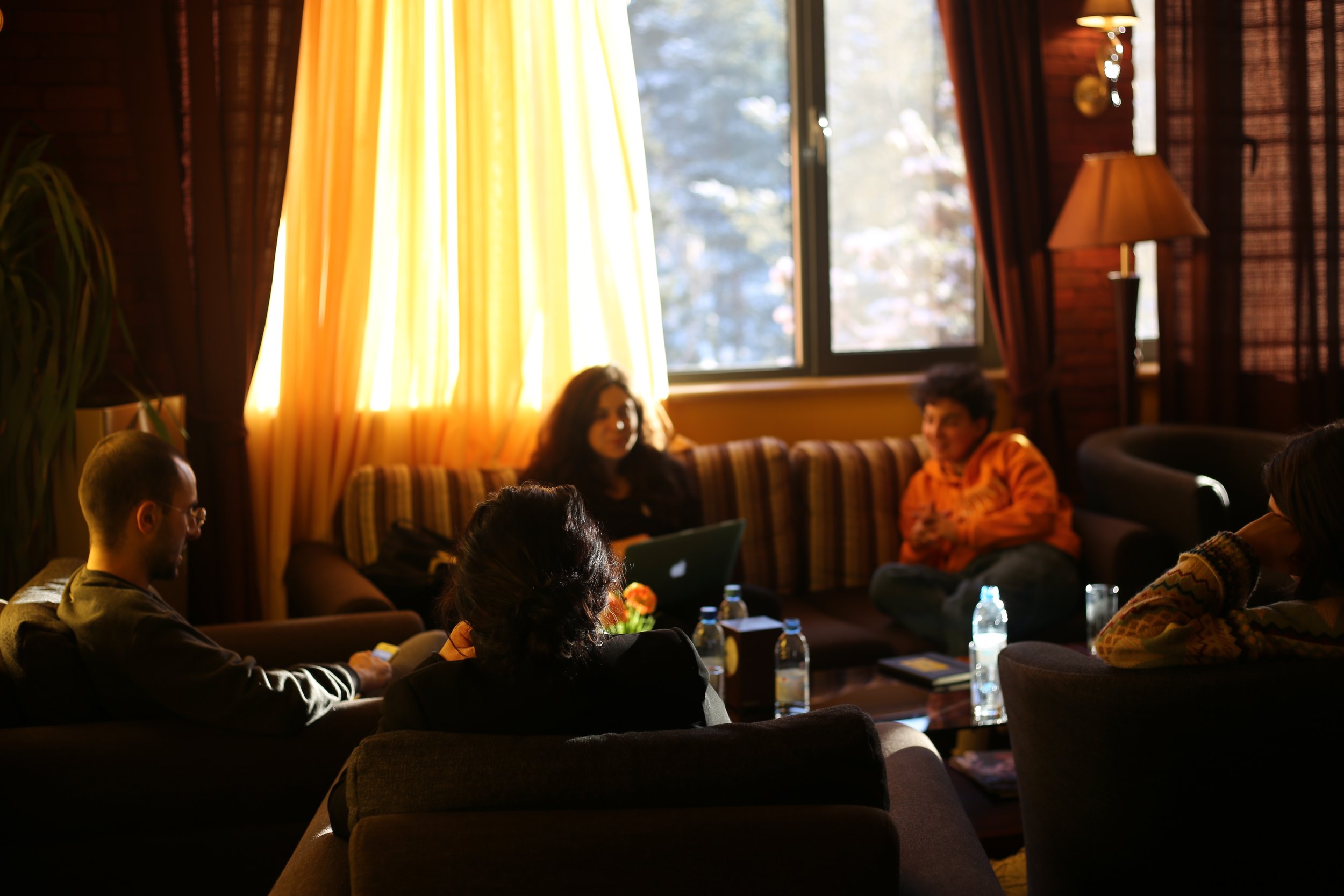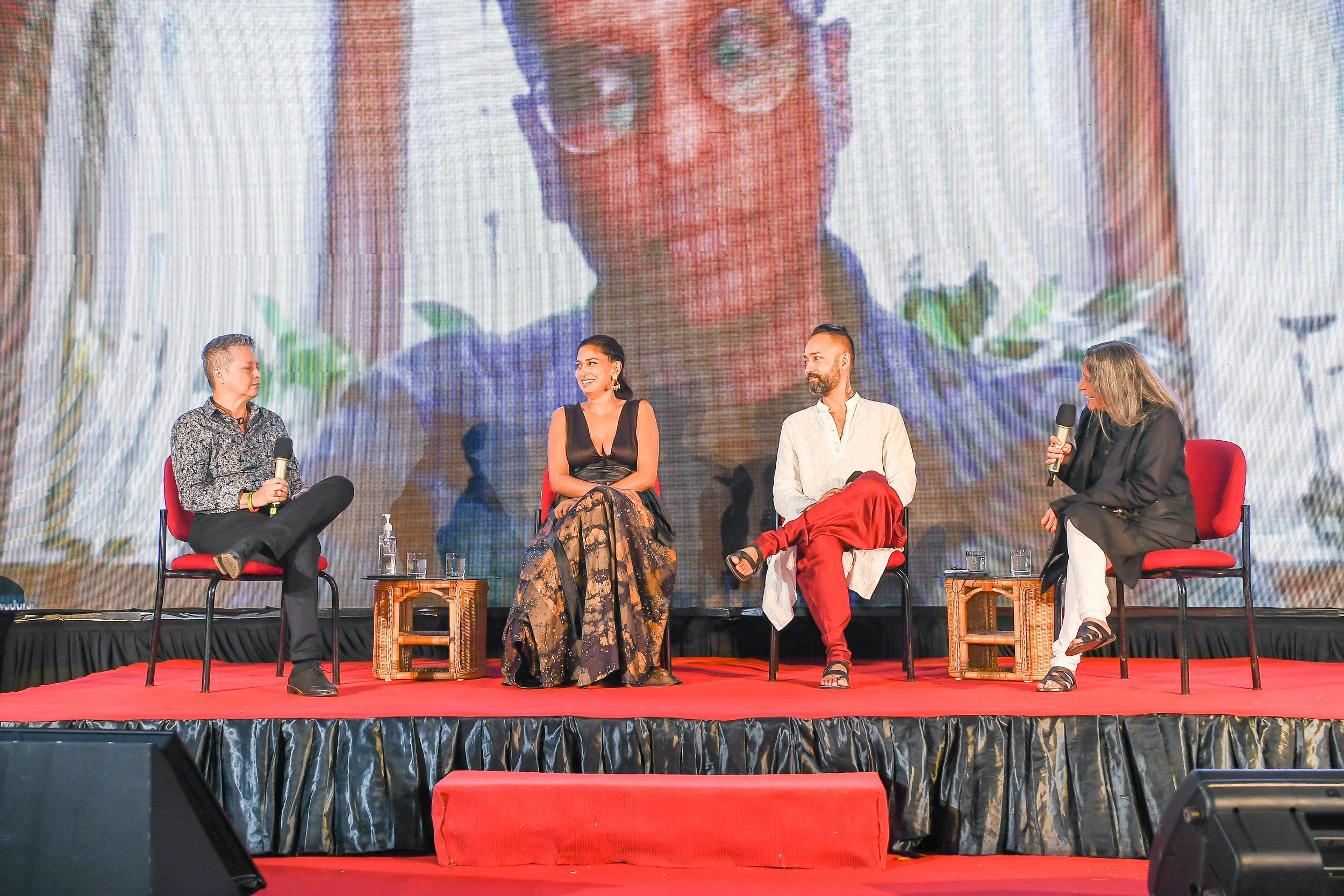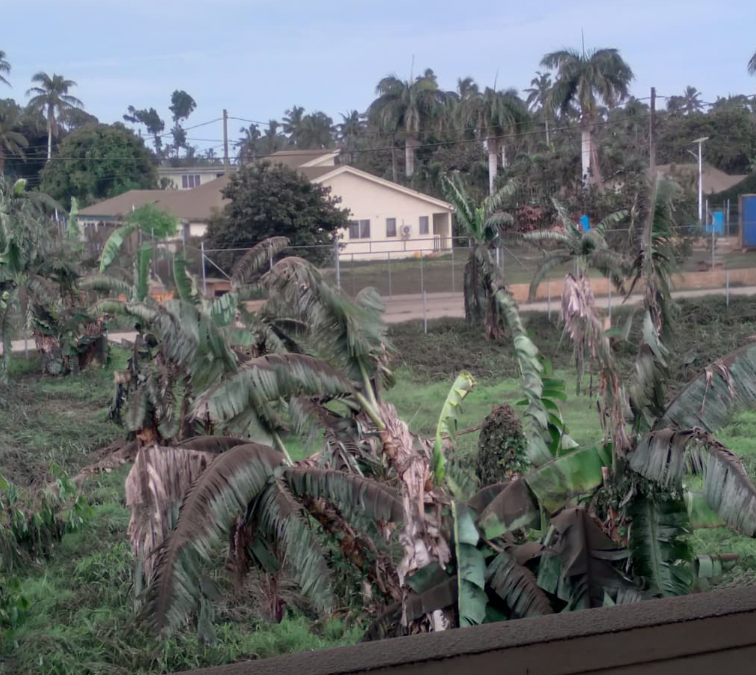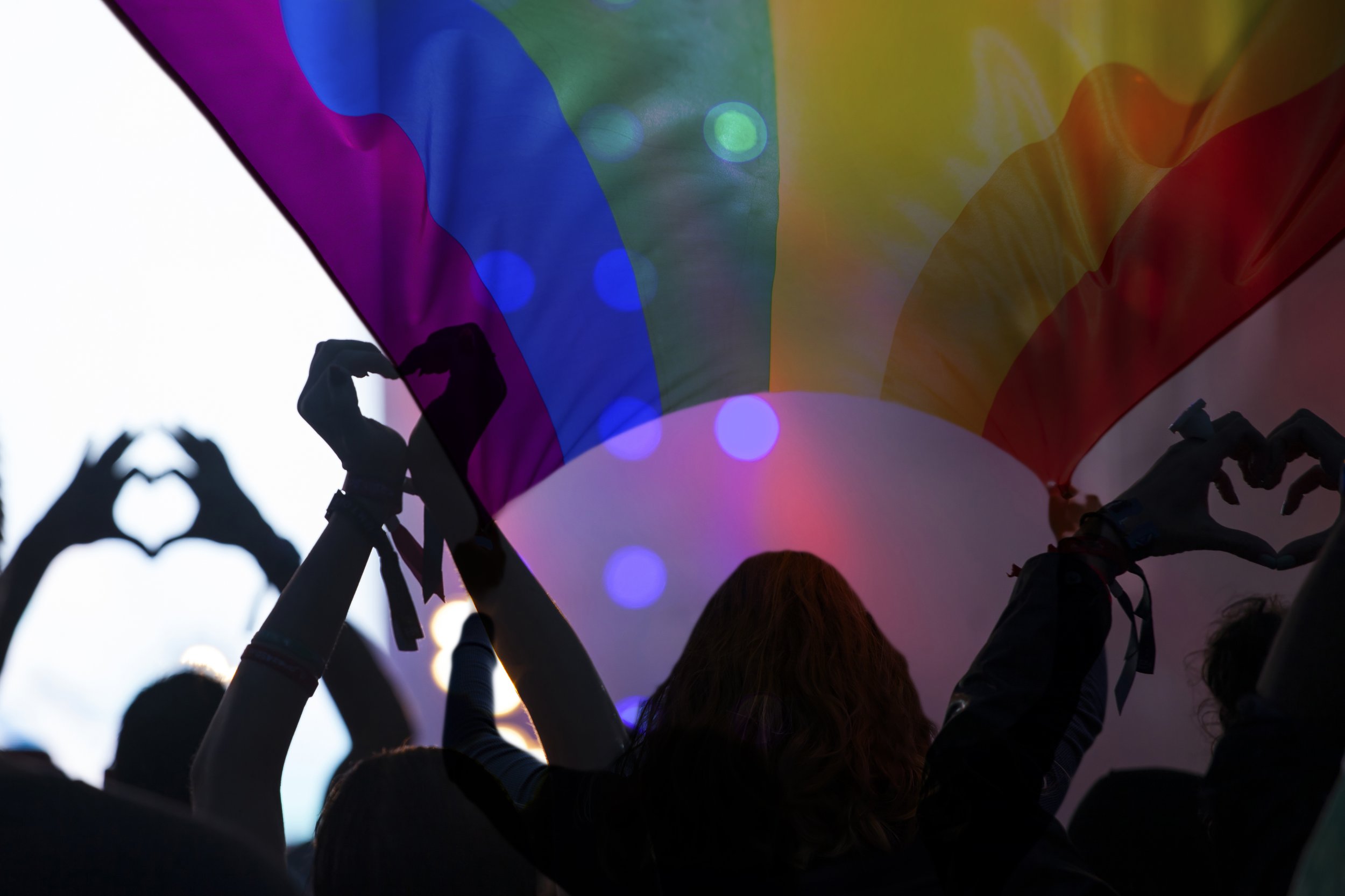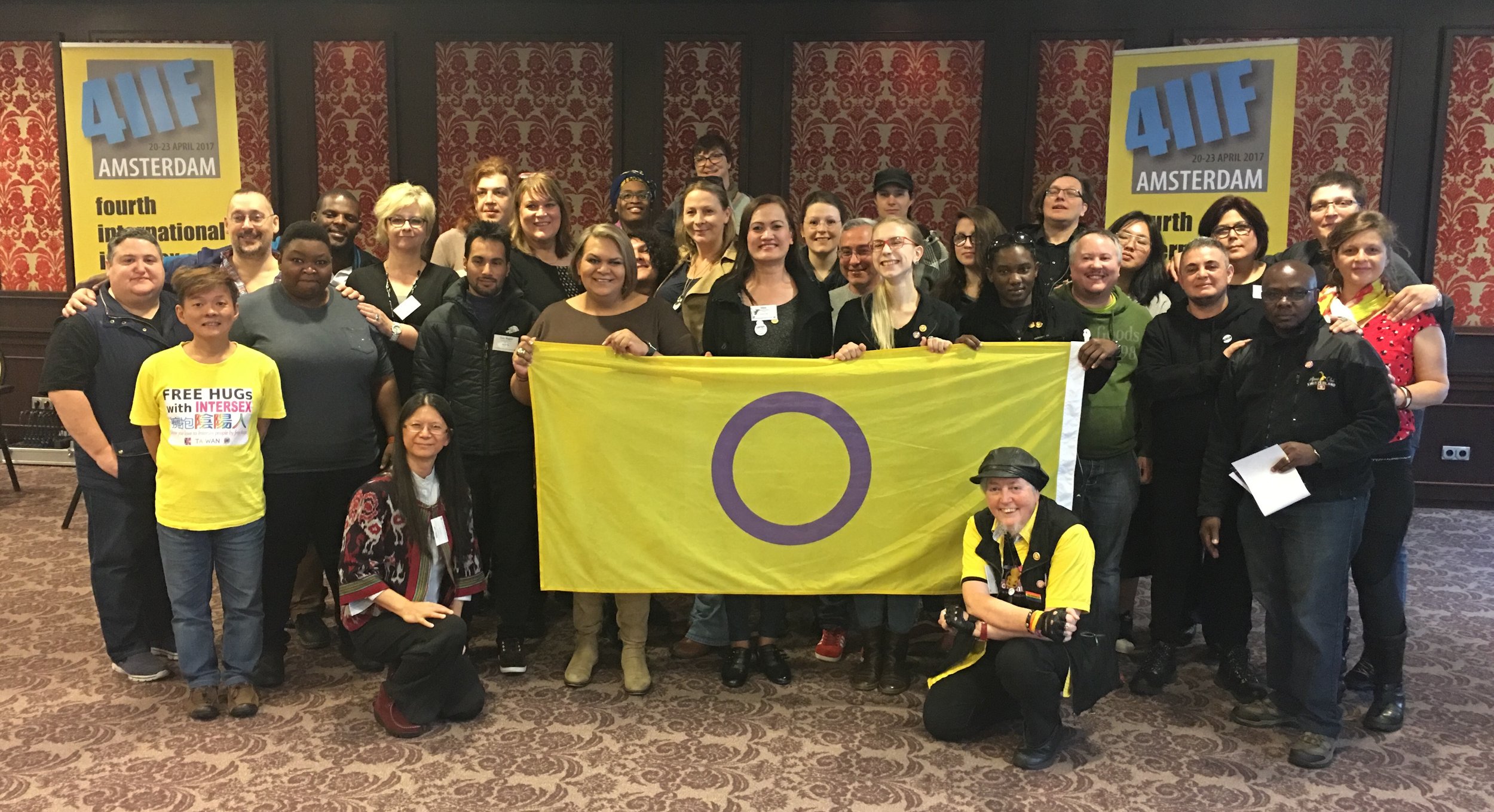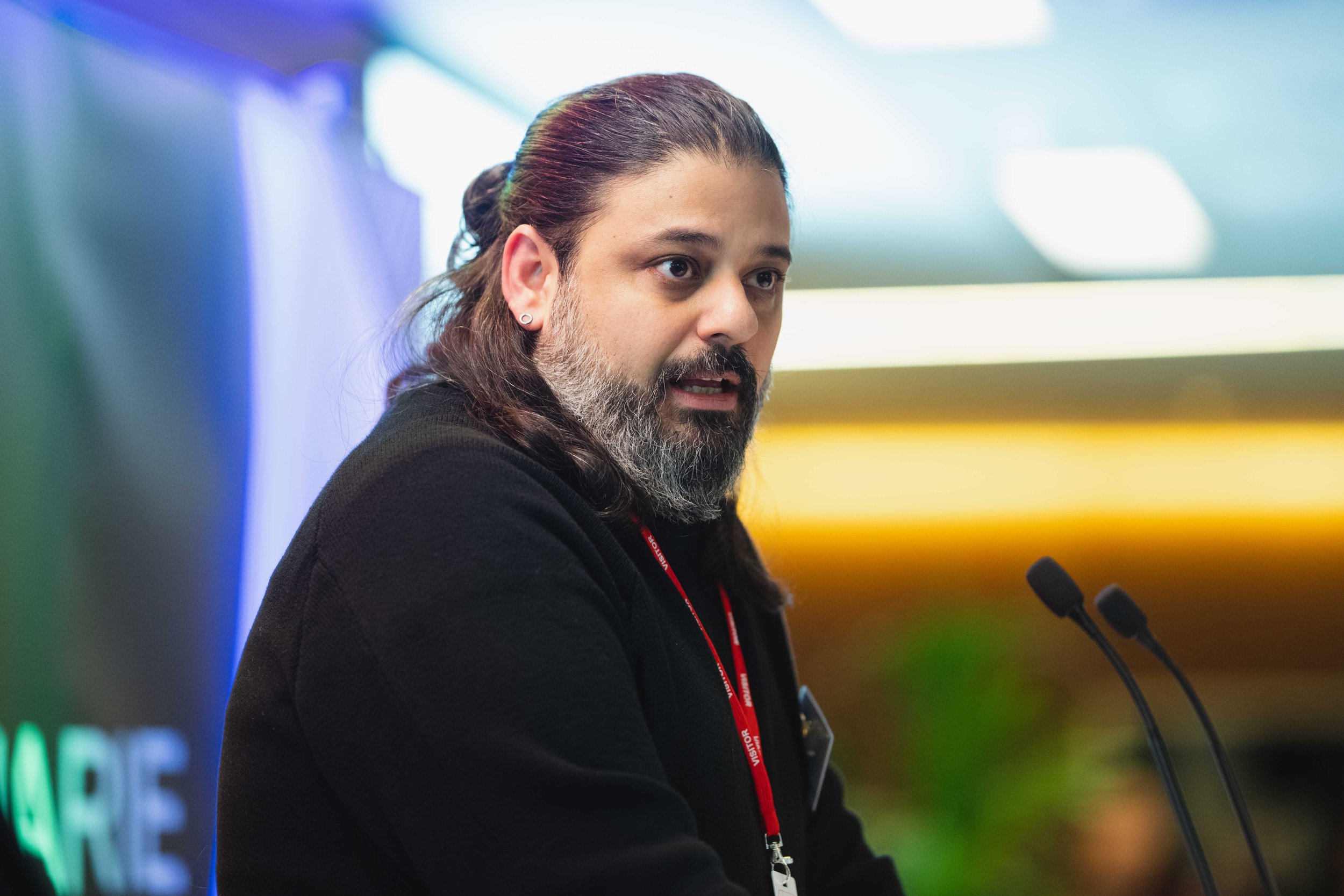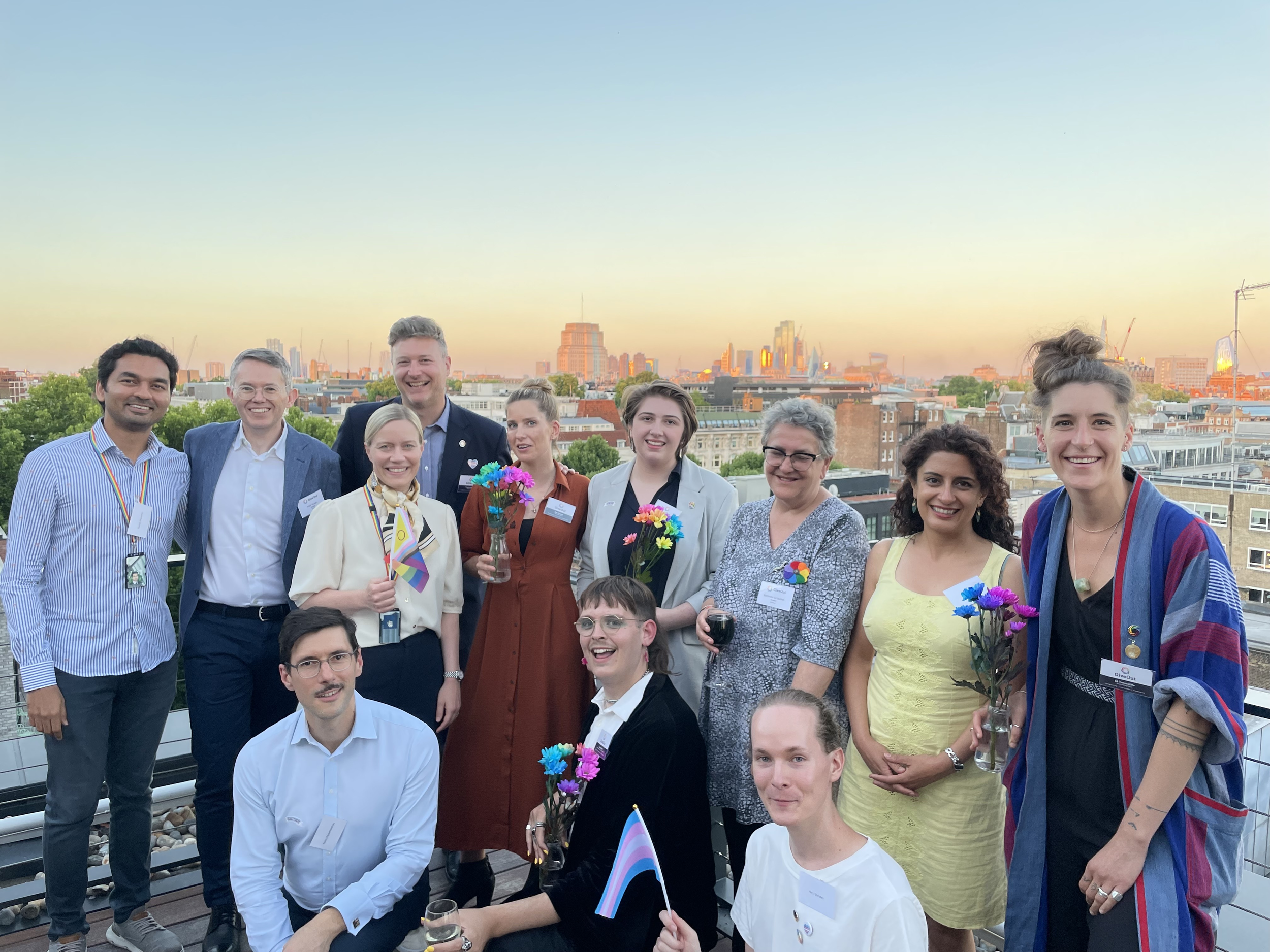“HEART TO HEART, COMMUNITY TO COMMUNITY” - 11 WAYS THE LGBTQI MOVEMENT PREVAILED IN 2022
This has been another year of crises. As the world tries to live with COVID, Russia’s full-scale invasion of Ukraine has killed thousands and forced many more to flee, contributing to a massive increase in refugees and internally displaced people. The war has led to crises for both global food and energy supplies, with surging inflation and a cost-of-living crisis affecting millions around the world. At the same time, the fatal impacts of climate change have been felt worldwide – from heatwaves in Europe to flooding in Pakistan.
Already vulnerable, LGBTQI people are disproportionately affected in crises. And we continue to be targeted for who we are, as we have witnessed this year from Uganda to Norway, Mexico to Iran. We mourn all those in our community lost through violence, including those murdered in the Club Q shooting in Colorado Springs last month on Trans Day of Remembrance.
Often against the odds, LGBTQI activists and their organisations are defending our communities and campaigning for equality. Our communities rely on these organisations, just as these organisations rely on our community globally, in solidarity. As Ukrainian activist Lemmy Emson told GiveOut in describing the support offered by the LGBTQI community and allies in Ukraine and around the world: “It was heart to heart, community to community. It's the experience that you will remember throughout your life.”
As we reach the end of 2022, we are taking a moment to look back on some of the ways our movement has prevailed this year, including several notable wins involving GiveOut’s grant partners:
GIVEOUT’S END OF YEAR SPECIAL PODCAST EPISODE
1. SHOWING SOLIDARITY WITH LGBTQI PEOPLE IN UKRAINE
In Ukraine and neighbouring countries, LGBTQI groups including Insight and KyivPride transformed overnight into humanitarian organisations, providing vital support to LGBTQI people in the country and those forced to flee. In an incredible show of solidarity, the LGBTQI community and allies around the world have provided financial and other support to enable this vital work.
@InsightOlena, Ukrainian organisation packing essential items
In times of war and other crises, LGBTQI people face higher risks yet are often left behind or excluded from humanitarian efforts. For example, the Kyiv-based LGBTQI organisation Insight has documented how transgender people in Ukraine have struggled to access hormones and other medical treatment following Russia’s full-scale invasion. Russian soldiers have been accused of homophobic and transphobic violence. Transgender men and women whose gender expression and identity don’t match their official documentation have faced challenges when attempting to flee Ukraine, due to an order forbidding males aged 18-60 from crossing the border and ordering them to register for military service.
Ukrainian LGBTQI organisations have had to pivot to provide life-saving humanitarian support to their communities, such as food, shelter and medical supplies. “Believe me, not so many people want to go abroad and stay there forever. They want their life back in Ukraine,” stated Ukrainian LGBTQI activist Olena Shevchenko at GiveOut’s community briefing event back in April. “Those people who need it [humanitarian support], the most marginalised ones, they just don’t get it.”
Ian McKellen tweeting support for GiveOut’s Ukraine Appeal
Talking about the power of the community in Ukraine, LGBTQI activist Lenny Emson told GiveOut: “I was personally amazed at how many people reached out to offer us their help, offering all sorts of help from hugs to their homes. I got so many messages saying send your refugees to me, I will house them with pleasure. And so many messages when people offered money and other support to help the LGBTQI community in Ukraine.”
In an incredible show of solidarity, the LGBTQI community and allies around the world have provided financial and other support to enable this vital work. GiveOut activated our LGBTQI Emergency Fund to support Outright International’s fundraising appeal responding to the crisis. Through initiatives including Beverly Jones ‘Sketchathon’ to Pink News and GoFundMe’s LGBTQ+ Refugees Welcome fundraiser, our community and allies in the UK have given almost £100,000 to support Outright’s appeal, which in total has raised over $1.6 million, with funds being distributed to 39 LGBTQI organisations in Ukraine and neighbouring countries. This support is enabling them to provide emergency shelter, humanitarian assistance and other vital support to LGBTQI people in Ukraine and those who have had to leave.
LGBTQI UKRAINE PODCAST EPISODE
2. SUPPORTING LGBTQI REFUGEES, FROM AFGHANISTAN TO ZIMBABWE
Evacuation of LGBTQI Afghan people
Rainbow Railroad has supported the resettlement of 247 LGBTQI Afghans to the UK, Ireland, Canada, and the US. And in the UK, Rainbow Migration continues to provide vital support to LGBTQI asylum seekers, successfully supporting them through the asylum and refugee process.
The number of displaced LGBTQI people has grown considerably in the past few years, due to humanitarian crises and war in contexts including Ukraine and Afghanistan and the climate crisis.
Last year, GiveOut’s supporters raised over £100,000 to support Rainbow Railroad in evacuating LGBTQI people from Afghanistan. One year later, Macquarie and GiveOut hosted a briefing event with Rainbow Railroad and Rainbow Migration, to update those who supported this appeal.
Since the Taliban takeover, Rainbow Railroad has provided life-saving support and financial assistance to 648 people from Afghanistan, including the successful resettlement of 247 LGBTQI Afghans to the UK, Ireland, Canada and the US. Many LGBTQI people remain in Afghanistan, and Rainbow Railroad continue to provide support.
One person who was helped by Rainbow Railroad is Amina (a pseudonym), a young, lesbian woman from Kabul. Because of her leadership in LGBTQI groups at university, the Taliban hunted Amina. She had to change location every few days, constantly afraid she would be discovered and executed. Rainbow Railroad acted quickly to help rescue her and many of her friends. Amina was able to flee Kabul and hid in neighbouring countries for over two months, supported in safe houses. Rainbow Railroad helped Amina arrive in a safe country, where she and some of her friends now live - but she knows that the important work continues and is still fighting for her fellow LGBTQI Afghans.
In the UK, Rainbow Migration have been calling for an end to the detention of LGBTQI asylum seekers, in their ‘No Pride in Detention’ campaign. Although the situation for LGBTQI refugee and asylum seekers in the UK is tough, Rainbow Migration have been supporting LGBTQI refugees through the process, and this year have helped secure refugee status for people from countries including Ghana, Pakistan and Zimbabwe.
3. DECRIMINALISING SAME-SEX RELATIONS, FROM SINGAPORE TO BARBADOS
This year has seen the removal of colonial-era discriminatory and stigmatising laws that criminalise same-sex relations in several Commonwealth countries - Antigua & Barbuda, Saint Kitts & Nevis, Singapore and Barbados.
Members of The Commonwealth Equality Network (TCEN)
In July and August of this year, Saint Kitts & Nevis and Antigua & Barbuda had laws criminalising same-sex relations struck down by their High Courts, becoming the latest in a string of Caribbean nations to achieve this in recent years following success in Belize, Guyana and Trinidad and Tobago.
GiveOut’s partners The Commonwealth Equality Network (TCEN) and Kaleidoscope Trust supported foundational research and strategic guidance by the Eastern Caribbean Alliance for Gender and Equality (ECADE), a consortium of attorneys, civil society groups and human rights trusts tasked with taking aim at discriminatory laws in the Eastern Caribbean.
For ECADE Executive Director Kenita Placide, it is not just about launching and winning legal cases but also building community. “The majority of community members know this is the first step and there is a lot of work still to be done around education and public awareness… We are ready to keep on going.”
In December, the Singaporean Parliament voted overwhelmingly in favour of repealing section 337A of the criminal code which made adult consensual sex between two men a criminal offence. The repeal comes after years of activism, advocacy and legal challenges. Roy Tan, a medical doctor who had once unsuccessfully challenged the law in court, described the repeal to the Guardian as “the birth of a new chapter in the history of Singapore’s LGBTQI community”.
Reflecting on the win, Ng Yi-Sheng, a member of GiveOut’s grant partner ASEAN SOGIE Caucus, said “My heart is full, my fingers are tingling, and I know this will have ripple effects.”
To end the year, the High Court in Barbados also struck out their colonial-era laws that criminalised same-sex relations, making the country the third Caribbean nation to make similar reforms this year.
4. BANNING CONVERSION THERAPY, FROM NORWAY TO NEW ZEALAND
In 2022, New Zealand, Canada, France, Norway and Mexico became the latest countries to bring in nationwide bans on conversion therapy practices, joining Brazil, Ecuador, Germany and Malta which have introduced similar bans in recent years. In Israel, a directive by the Health Ministry banned conversion therapy by medical professionals. And in the US, Pennsylvania became the 25th state to pass a regional law preventing the practice.
Cover of Outright’s report Converting Mindsets, Not Our Identities
Conversion therapy is defined as efforts that aim to suppress or change a person’s sexual orientation, gender identity or gender expression. Despite these practices being rejected by every mainstream medical and mental health organisation for decades, practitioners across the world continue to conduct conversion therapy, having devastating impacts on LGBTQI lives.
This year, GiveOut’s partner Outright International published ground-breaking research into conversation therapy practices in Nigeria, Kenya and South Africa, marking the first in-depth study of these practices within the African continent.
The study, ‘Converting Mindsets, Not Our Identities’, was designed to build a local body of knowledge on conversion practices in the region, raise awareness of their nature and negative impact, and build a broad base of support to work towards establishing appropriate protections for the LGBTQI community against them.
Of the 2,891 LGBTQI participants surveyed across the three African nations, more than half indicated that they had undergone some form of conversion practices, ranging from talk therapy, exorcism, drinking herbs, prayer, laying of hands for healing, to more violent methods such as beatings, rape or other forms of sexual violence. The main perpetrators of conversion therapy across the three countries were found to be religious leaders, mental health practitioners or family members. The research also found that many survivors of conversion therapy suffered from depression, social anxiety, substance abuse, and thoughts of or attempted suicide.
Importantly, the paper included recommendations for governments, civil society organisations, faith and religious leaders, medical and mental health associations and practitioners and academia on how to eradicate conversion practices within Africa.
5. LAUNCHING A NEW LGBTQI LEGAL AID FUND, HARNESSING THE SUPPORT OF LEADING LAW FIRMS
Jayna Kothari, Vyjayanthi and Aparna Reddy from CLPR at the Telangana High Court
A new LGBTQI Legal Aid Fund has been launched by GiveOut, to enable leading law firms to support LGBTQI organisations using the law and courts to advance equality, including in those places where same-sex relations and trans identities are criminalised.
There are many legal barriers for LGBTQI people around the world who are seeking freedom and equality. Sexual activity between adults of the same sex is criminalised and, in some jurisdictions, the death penalty is imposed. Many authorities use public order, vagrancy and misdemeanour offences to harass, arrest and prosecute trans people, and gender expression and/or identity of trans people is criminalised through ‘cross-dressing’, impersonation and disguise laws.
This year, GiveOut launched the LGBTQI Legal Aid Fund, working with leading law firms Travers Smith, Allen & Overy and Latham & Watkins to support organisations using the law and courts to advance equality, including in those places where same-sex relations and trans identities are criminalised.
One of the partners supported under the Fund is the Centre for Law and Policy Research (CLPR) in India. Through the LGBTQI Legal Aid Fund, there will be opportunities to provide legal research support on a number of projects at CLPR, including the blood donor guidelines case awaiting a hearing at the Supreme Court and CLPR’s South Asian Translaw Database. At the launch of the Fund in June, CLPR’s Executive Director Jayna Kothari explained: “The fund would help support legal reform and legal support for trans rights in India. Certainly, one of the ways forward is to take up litigation, to do strategic legal work, to promote LGBTQI equality, and what better way to do it than get legal support.”
LGBTQI LEGAL AID FUND PODCAST EPISODE
6. PROVIDING LGBTQI SAFE SPACES, FROM ARMENIA TO THE CARIBBEAN
Reunited and it feels so good 💕@TransWaveJA and JFLAG are back together at the new and improved Rainbow House. Here's our digital welcome to the new work space. Building launch coming soon. pic.twitter.com/aDnxKMJwpq
— Equality Jamaica (@EqualityJa) October 12, 2022
Safe spaces have long been vital for the LGBTQI community, creating a place where we can come together for protection and to build community. This year, two of GiveOut’s grant partners – Pink Armenia and J-FLAG - have shared the impact of their community centres.
In Armenia, for security reasons, the location of Pink Armenia’s community centre is not disclosed and is simply known by community members as Taniq, which translates to “roof” in Armenian. This safe space offers shelter and respite to the community, who face discrimination and violence for being LGBTQI. In ILGA Europe’s 2022 Rainbow Map and Index, the only two countries that ranked lower than Armenia were Azerbaijan and Turkey. In this context, a safe space for the community in Armenia is vital.
One of the community members using the space explained: “Before visiting Taniq, I didn`t know if there were other people like me in Armenia.” After learning about Taniq, they found an entire community of people who were just like them, saying: “When you live in a society where you have to hide yourself, it's very important to be able to meet other people like you, to learn about different things, and to be yourself.”
And on the other side of the world, LGBTQI community hub Rainbow House is back up and running in Kingston, Jamaica, with the space being shared by grassroots organisations JFLAG, TransWave and Equality Youth Jamaica. Four years ago, a fire had destroyed the space and much of the equipment used by the member organisations.
Renae Green, Executive Director for TransWave Jamaica shared her reflections on the significance of Rainbow House, stating: “This space will be a hub for our work and a space for the community to gather and our work to grow, it is in this space that we hope to achieve our vision and mission which is the inclusion, protection, and recognition of trans-Jamaicans.”
7. ADVANCING LBTQ WOMEN’S RIGHTS WORLDWIDE
In Sri Lanka, British colonial laws which criminalise homosexuality have long impacted the LGBTQI community, and since their introduction in 1883, have been amended to include women. This year, Rosanna Flamer-Caldera, the Executive Director of EQUAL GROUND, brought a case to the Committee on the Elimination of Discrimination against Women (CEDAW) to challenge these laws. Her victory will have positive implications for LBTQ women globally.
“My case to CEDAW challenged these laws and asked for redress for all the insidious incidents that have happened in my life as an LGBTQI activist in this country. Thanks to the Human Dignity Trust, who worked on this case with me for eight years, we finally managed to get an amazing outcome – CEDAW ruled that Sri Lanka violated the Convention on the Elimination of All Forms of Discrimination against Women, which protects women from all forms of discrimination. I’m thrilled about it.”
This win for LBTQ women’s rights has wider implications for all lesbian and bisexual women and those who have relationships woman to woman across the globe. Rosanna explained: “This case is the first of its kind brought to CEDAW. We’re hoping that the bare minimum will be to do away with the laws that criminalise same-sex relationships in this country [Sri Lanka].”
8. RESPONDING TO THE CLIMATE CRISIS – SUPPORTING THE COMMUNITY IN TONGA
UN research shows that people who are marginalised – including those facing discrimination – are especially vulnerable to climate change. GiveOut’s LGBTQI Climate Fund provides an opportunity to support ground-breaking work at the intersection of LGBTQI rights and climate change, ensuring that activists have more of the resources they need to support their communities in the face of this crisis. In response to the devastating volcanic eruption and tsunami in Tonga back in January – made worse by rising sea levels – the Tonga Leitis Association provided vital shelter and support to LGBTQI people, backed by donations from our community.
Tonga after the volcano and tsunami
In January, a massive underwater volcano and tsunami hit Tonga. All of Tonga was covered in dangerous volcanic ash, and buildings in coastal areas were ripped apart, leaving many Tongans without shelter. The eruption severed the country’s main communication line, making it difficult to establish early contact. The delivery of relief provisions was further complicated as the authorities tried to prevent the spread of COVID-19.
Following a fundraising appeal, GiveOut was able to provide an emergency grant to the Tonga Leitis Association, supporting them to provide LGBTQI people shelter, clean drinking water, face masks to protect from the hazardous volcanic ash, and transportation to make contact with those in more remote areas.
As sea levels continue to rise in coming decades, tsunamis and storm surges will likely be reaching further inland with even more risk of damage.
LGBTQI CLIMATE FUND PODCAST EPISODE
9. WINNING MARRIAGE EQUALITY, FROM SLOVENIA TO MEXICO
The year has seen wins for marriage equality across the globe, with progress in Asia, the Americas and Europe.
In Switzerland and Chile, laws legalising same-sex marriage came into effect. In October, Slovenia became the first post-communist country to allow same-sex couples to marry. The family law amendment was passed by a large majority in the Slovenian Parliament, not only granting same-sex couples the right to marry, but also the right to adopt children.
Meanwhile, in Mexico, lawmakers in the border state of Tamaulipas voted to legalise same-sex marriage, becoming the last of Mexico’s 32 states to do so. In 2015, the Supreme Court declared that state laws preventing same-sex marriage were unconstitutional, but some states took years to adopt laws confirming the ruling.
And across the Gulf of Mexico to Cuba, in September Cubans voted to legalise same-sex marriage in a national referendum, with 66% in favour. The law required 50% of voters' approval to be adopted.
Gains were also made in several other countries, including Japan, where marriage equality moved a step closer following a court ruling that the lack of legal protection for same-sex couples violated their human rights. Japan is the only G7 nation that does not allow same-sex marriage despite polls showing a majority of voters support it.
Progress was made in Thailand, where bills to allow same-sex marriage or civil unions were approved by the lower house to be reviewed by a law-making committee before coming to a vote.
In India, the Supreme Court agreed to hear the cases of two queer couples who have sought for their marriages to be recognised under the country’s Special Marriage Act. The Court’s decision to accept their petitions marks the first step in a process that could take years but is considered a positive step forward.
And just last week, with concerns about the US Supreme Court’s next moves following the overturning of abortion rights, Joe Biden signed the Respect for Marriage Act into law which grants federal protections to same-sex and interracial couples throughout the US. Biden described the law as “a landmark civil rights bill that honours the courage and sacrifice of generations of couples who fought for marriage equality and equal rights.”
10. PROTECTING INTERSEX CHILDREN IN GREECE
This year, Greece joined Germany, Iceland, Malta and Portugal as the fifth nation to have brought in nationwide protections for intersex children against unnecessary, non-consensual and abusive interventions.
19 July 2022 was a historic day for the intersex community in Greece, as the country became the fifth in the world to ban genital mutilation on intersex children. Thanks to efforts from Intersex Greece, supported by OII-Europe and GiveOut’s partner ILGA-Europe, intersex minors under the age of 15 are now protected from surgical operations and other invasive treatments aimed to align their sex characteristics to binary male or female categories.
Intersex Human Rights Fund Convening
One of the most powerful stories heard by the Greek Parliament in the lead-up to the landmark vote came from Irene Simeonidou, Secretary of Intersex Greece and mother of an intersex child:
“13 years ago, when I was five months pregnant, two obstetricians at the local hospital suggested, very insistently, that we must terminate the healthy and desirable baby I was carrying because it had an extra X on the sex chromosome.”
The ban in Greece is also unique, in that in addition to banning surgical interventions, it also bans hormonal interventions that target intersex children. This represents a key demand of intersex human rights organisations and is a shortcoming in some nationwide bans that include exceptions for certain conditions and do not provide universal protection.
GiveOut is proud to partner with the Intersex Human Rights Fund, who are dedicated to resourcing the intersex movement globally and championing the human rights of intersex people. They give flexible funding to enable intersex activists and organisations to promote the rights, agency, and autonomy of intersex people.
11. DEFENDING LGBTQI COMMUNITIES IN THE MIDDLE EAST AND NORTH AFRICA – WORLD CUP APPEAL
Long after visiting football fans and sponsors have left Qatar, LGBTQI people in the country and the wider Middle East and North Africa (MENA) region will need the support and solidarity of our global community and allies. GiveOut launched the LGBTQI MENA Appeal: World Cup 2022 to support those organisations in the MENA region that are working tirelessly to defend LGBTQI communities.
One such organisation is Helem, Lebanon’s largest LGBTQI rights organisation and the oldest Arab LGBTQI organisation in the region. They are a community centre, social service provider, legal aid clinic, and activist organising centre.
Earlier this year, the LGBTQI community in Lebanon faced a crackdown on LGBTQI organising and gatherings when a letter from the Interior Minister instructed security forces to clamp down on events that promote “sexual perversion”. Helem protested against this by co-organising a march in Beirut, as well as filing a lawsuit. The State Council has now suspended the decision, a major win for the community in Lebanon.
Tarek Zeidan, an LGBTQI activist in Lebanon and Helem’s Executive Director, told GiveOut: “Qatar is absolutely not an outlier when it comes to the sorts of practises and prejudice, stigma, discrimination against queer and LGBTQI individuals. We are witnessing a surge of LGBTQI issues as a vital political conversation within many countries in the region, especially Egypt, Tunisia, Lebanon, Palestine, and Iraq.”
The funds raised through the LGBTQI MENA Appeal will also support IraQueer, Iraq’s first and leading LGBTQI human rights organisation who work to raise awareness about LGBTQI identities and issues in the country and provide direct services and support to LGBTQI people.
THANK YOU SO MUCH
Thank you so much to our courageous grant partners around the world, for being there for our communities, and for allowing us to be there for you.
To every individual and business donating to GiveOut this year, thank you so much for your part in making this vital work possible.
Despite all the challenges our movement faces, what we can achieve together is incredible.
Thank you to our closest individual supporters, including: Antonia and Andrea Belcher, Paolo Fresia and Charlie Melvoin, Josh Graff and Jon Steinberg, Suki Sandhu, Steve Wardlaw and our 100 Circle of regular givers.
Thank you to our corporate allies, including: our founding sponsor Boston Consulting Group, Levi Strauss & Co, Macquarie, Gay Times, Global Butterflies, Goldman Sachs, Latham & Watkins, McGill & Partners, Mellersh & Harding, Travers Smith, Spotify, Allen & Overy, Simmons & Simmons, Guidewire, ev.energy, Emerald Life, Bryan Cave Leighton Paisner, Burberry, Kennedys, and BNP Paribas.
And thank you to our trust and foundation funders, including the Baring Foundation and Wellspring Philanthropic Fund.
If you are not yet giving and would like to do so, we would love you to join us.
For those celebrating Christmas, we wish you a happy and peaceful festive period, and here’s to another year of solidarity and progress for LGBTQI human rights around the world.
GiveOut | 3rd Floor | Thomas Ford House | 23-24 Smithfield Street London | EC1A 9LF
GiveOut is a charity registered in the UK with the Charity Commission for England and Wales (Registered Charity Number 1176434).

